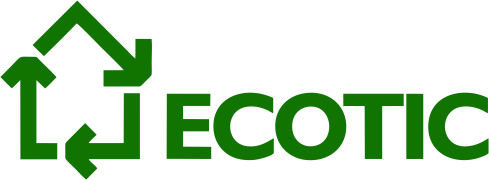After in the previous episode We have shown, in short, what the circular economy means and what would be some of its main benefits, in this episode we focus on the attitude that Europe has, through its institutions, towards this new economic vision (and not only).
Until 2014, Europe's waste management policies were mainly focused on reducing their quantity - in other words, the main concern was focused on the final stage of a product's life, when it becomes waste. In the same year, the European Commission noted that this approach, although it could deliver results, did not go into the depths of the economic and consumption mechanisms that generates waste. A plan was needed to encourage economies to make changes throughout the life of a product, from the design stage, to minimize the impact on the environment. A plan that no longer looks only at waste, but at the economy that generates it.
Thus, the Commission returned, in December 2015, with something called "Circular Economy Package". What is this package? In short, it is a package of actions that the European Commission has presented in the European Parliament, actions meant to tick three major objectives:
- To increase economic competitiveness
- To create new jobs
- To generate healthy and sustainable growth
Ambitious goals, certainly, meant to encourage circular economy initiatives, but how can they be achieved through this set of proposed measures and actions?
The circular economy is a concept that risks remaining so - a concept - if not strong enough levers are found to generate adherence among a critical mass of economic operators. Basically, a fairly large number of businesses need to enter this new paradigm and begin to generate demand and growth. And between these businesses it would be good to find both the great economic players of the moment - corporations such as Renault, Ricoh or Philips, which are already trying to integrate the principles of the circular economy into their business model - to give confidence and strength to the current of change, as well as new, emerging businesses that create innovation and imprint healthy dynamics economic model.
So, leverage. What levers does the package adopted by the European Commission propose? From the Commission's website, we find the following:
- They are made available funding: 650 million euros on the Horizon 2020 program and 5,5 billion euros on the structural funds, for waste management and investments in the circular economy at national level
- The development of some is being considered quality standards for secondary raw materials (ie materials that are recovered by recycling), to encourage their use by manufacturers, in the scheme "my waste can become a secondary raw material for you"
- Measures are proposed within Ecodesign Plan 2015-2017, to generate products that last longer and can be repaired and recycled more easily
- A strategy for plastics in the circular economy, to address problems related to their recycling, the hazardous components present in their composition, in addition to the problem of biodegradability.
- A revision of the legislative proposals on waste, in order to speed up the improvement of selective collection rates and discourage the dumping of waste in landfills.
There are other points, and if you want to get more information, we encourage you to visit europa.eu.
We find, therefore, that Europe has plans with a circular economy. We hope to see these plans turn into results soon, and we also want to see more and more economic initiatives built on these new principles.
In the following episodes, we aim to present concrete examples of businesses that have integrated in their business model principles of the circular economy. Who knows, maybe we can come up with ideas!
Until then, we leave you in his company Jyrki katainen, Vice-President of the Commission, who said: “Aceste propuneri transmit un semnal pozitiv acelora care vor sa investeasca in economia circulara. Azi, credem ca Europa este cel mai bun loc in care se poate dezvolta o afacere sustenabila si prietenoasa cu mediul . Aceasta tranzitie catre o economie mai circulara este despre (…) competitivitate. Potentialul crearii de noi locuri de munca in economia circulara este imens, cererea pentru produse si servicii mai bune, mai eficiente este exploziva. Vom indeparta barierele care impiedica afacerile sa isi optimizeze resursele si vom sustine pietele interne de materii prime secundare. Ne dorim un progres real.”
